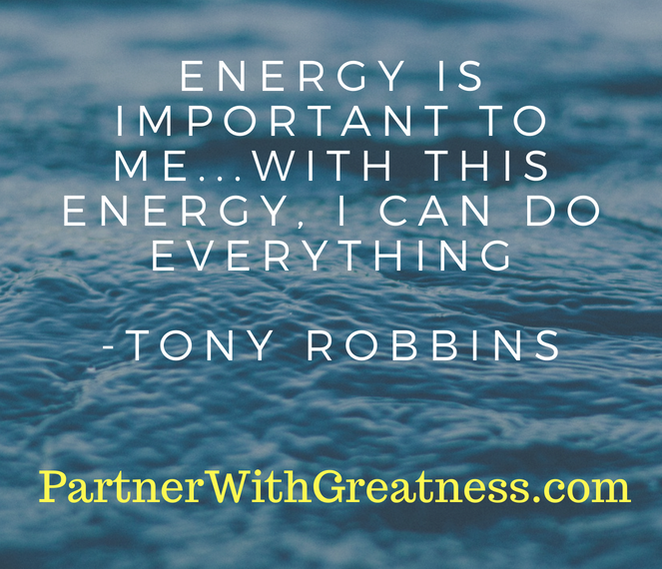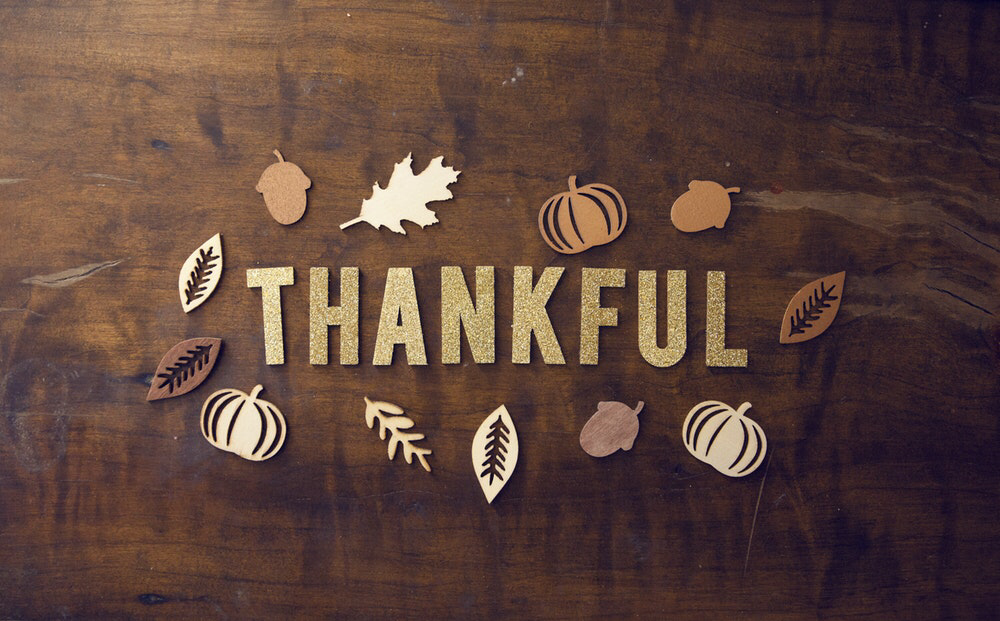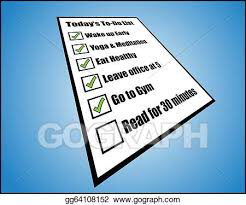|
Alternative schools are intense. Can we agree on that? Regardless of what you know or what you've heard about them, that's a basic statement we can work with. Instructors face enormous challenges, and have no choice but to be shaped into the special forces of teaching!
Alternative students don't act like you expect them to, and while you're feeling the pressure of hitting all the academic targets you've been tasked with, you quickly realize that these insanely talented, tough, sensitive, and promising youth have perhaps a greater need for teamwork skills, anger management, assertiveness, wellness, vision, and feelings of purpose. Therefore, in order to be effective there, THOSE are the EXACT qualities YOU must master and live out on a daily basis! And, who better to throw you into the fire and train you than the very students "the system" has underestimated, labeled, frustrated, and cast aside? Why not you?
0 Comments
If I could give my younger self some relationship advice, the first thing would be to lean back so she can lean in if she wants to: give her more room. That extra space can allow you to see how much the other person is going to reciprocate- it may not be enough for you, and that’s okay; you don’t have to stay in a relationship that’s run its course just to prove you’re a loyal person. Most of all, being younger is a great gift because you are feeling out which direction you want to go. It’s hard to feel out what you’re doing when someone else is always in your bubble. Give her some space when you’re young and dating. Give her a reason to miss you. “Serious” is not a requirement of dating someone when you’re younger; you can still have trust, respect, and substance without getting overly “serious.” Now that I’m married, I get plenty of time to do all the thicker and heavier reminders that I care and I’m not going anywhere. Being married is the appropriate time to accept a life of being bonded together in a serious way. “Serious” is not a requirement of dating someone when you’re younger; you can still have trust, respect, and substance without getting overly “serious.” Now that I’m older, the young relationships that I admire the most are the ones where they’re not rushing to spend all their time together alone. It’s so satisfying to see young people actually do life together, not just do house and movies together. Go to youth group together, play ball together, help people together, lead a project together, and touch the greatness that can happen when a couple uses their relationship as a platform to make good things happen for friend groups, families, schools, even towns.
Here's To Your Greatness! This question was asked recently on Quora.com, and I knew I had to put my answer up here, too.
My answer: Learn how to relate to the other generations who were born before you. The question itself implies that youth can stand out TO somebody. I would imagine it’s talking about older people. That’s not a bad thing. Indeed, one of the common criticisms I hear about today’s youth is that they feel entitled to operate in their own bubbles and not try to adapt themselves to the ways and thoughts of older people. To be honest, it’s often a lack of exposure that keeps young people from being able to relate to older people, even if they wanted to. So as a young person, you’ve got to make this a priority. To stand out to anyone, you need to find that golden balance between being interesting and being interested. People feel grateful when someone has taken an interest in their lives. That’s a timeless truth for human beings, and it’s why Dale Carnegie’s book “How to Win Friends and Influence People” is still a giant in the personal growth category, almost a century after its 1936 publication. Those early personal growth books weren’t just about financial success. They were manuals for achieving a balanced type of wealth that included success in relationships, the pride and satisfaction of helping others, and of course, success in business and career, too. This idea of being interested in others doesn’t just help you make friends with them or influence them when you need them. It also puts you in the intereviewer’s seat. Asking good questions allows you to pull from someone else’s wisdom and apply it to your wisdom. It helps you understand how they think, why they do what they do, what motivates them, what their needs are, and how to collaborate with them. Learn how to relate to other people intentionally. Help people feel important in their own world. Decide what kind of group you want to be a part of and help the whole team succeed by being generous with your talents and your sincere questions. Then, you will be respected and appreciated, and they will miss you when you’re gone, not just because of who you have become, but also because of what you have done, and the difference you have made with your life. In the meantime, you will definitely stand out from your generation. Here’s To Your Greatness! Harding One thing I notice that keeps many young folk from accessing the greater treasures of teamwork, growth, and joy is the notion that when you're mad, everybody has to hear about it and pay for it. Let me show you what I mean. Anger is close cousins with some other negative emotions, and they tend to quickly switch places, one leading to the other before we think things through. I get called out for being on my phone in a meeting, and it's embarrassing to get called out, so I get mad, and to get everyone's attention off of me, I blurt out "well, Mike is on his phone, too!" We've all been there! Maybe you aren't the person who reacts that way for that situation. But here's something a little more subtle for you to consider, because if you're reading this, I know you're ready to grow. Jimmy walks into work and everyone is doing their best, but someone made a mistake. The team has been taught about the issue of keeping the doorways clear, but things got super busy, and for whatever reason, Jimmy's coworker Theresa made a stack of empty boxes near the doorway instead of stopping to take the time to move each empty box into the bin. Jimmy cruises around the corner with his coffee, talking to someone over his shoulder, and collides with the boxes, spilling his coffee. Order and neatness means a lot to Jimmy, and besides, he was really enjoying that coffee. So, he stops in his tracks and says, "Dude! This is exactly why we gotta keep those boxes out of the way! What's so difficult about that? What's it gonna take for us to stop doing that?" When you've just experienced something that irritated you, you will absolutely sound irritated, unless you're some kind of Jedi master with superhuman self control. So, what's the good in talking when you're irritated? Why not just keep it to yourself until you're cool again? Even if Jimmy tries to roll it off as partly joking, or use his calm voice, it's still going to shine through. Think about how that comes across to the people you're working with: When people are in the middle of doing something tough, and they're doing their best and trying to stay ahead, they're probably not going to be in the mood to "get told" by an irritated person! That creates no gains for you or them. Even if Theresa owns it and comes and clears out the boxes, she's only doing it out of compliance, fear, embarrassment, or even being passive aggressive, shoving or kicking the boxes with extra noise while she clears them out. There are plenty of team culture issues that we could focus on. Why isn't Theresa more coachable? Why can't people correct issues in the moment? On and on. I want to talk about Jimmy right now, though, and what he can control. Jimmy can choose to do something powerful. He can put down his coffee and move the boxes himself. Maybe Theresa will see him do it, knowing she was at fault, and appreciate his behavior. Maybe Alex, the new guy, will notice that Jimmy did it without trying to find out whose fault it was or get on someone's case. Maybe the customers looking through the window will see Jimmy moving the boxes instead of some jerk with a coffee complaining to whoever is listening. And maybe Jimmy's supervisors have just walked in for a surprise visit and catch him in the act of helping his team without asking for credit. The "ripples" you make really do affect other people, and then they will reflect that back to you. If you can learn to express your frustration to people later in a calm moment, not during the moment when you're mad, good new things can start to happen. Jimmy doesn't have to stuff his anger and never mention it. He can get himself together and go to Theresa after he finishes his coffee, and talk to her when he's under control again. Treating people well is way too hard when you're mad. So, just chill out, keep doing what you're supposed to do, and find your words when you're calm again. That's a victory that feels good to win. Hope this finds you well, and I hope it helps! Here's To Your Greatness, P.S. Looking for a way to keep things light? Shoot us an email to get one of these "Salty Bro" shirts and get your people smiling today! We're in pre-launch, so for now, it's just PayPal and mailing shirts by hand :)
My goal is to live long into old age and continue to be helpful to others. I’m pretty sure the purpose of my life won’t end at a certain age, and that I will always have good work to do, if I choose to do it. Why? We’ve all had a moment where we witnessed an act of kindness, got something good that we didn’t deserve, or saw forgiveness take place in spite of pain. For me personally, those moments helped convince me that people are basically good, everyone has value, and helping people is the way to go. So why do so many of us struggle with bitterness, living out a story in our minds that doesn’t seem to have any sweet chapters ahead? The point I think we often miss is that those early moments of faith and hope have a connection to our daily attitude right now. If faith is the spark of our beliefs about the world and how we should live, thankfulness is the fuel for that fire. Sometimes it’s mistreatment or pain that replaces our faith, swapping out a positive belief for a negative one. It’s tough to have faith when your self esteem is slipping. And positivity can be hard when you feel like things are happening out of your control. There is a stronger power you can claim in your life, though! It’s the power of viewing almost everything in life as a choice. Most importantly, we get to choose how we act, and how we react. One of the greatest challenges we face is maintaining our faith over the long haul, and the truth is that it’s a choice. It’s a choice to notice and appreciate the good parts. When you’re finished reading this post, you can Google examples of people who remain grateful despite incredible abuse, trauma, and hardship. You can even look up the scientific health benefits of practicing daily gratitude. But the bottom line is, there’s a lot more joy available to you if you can quit being stubborn and decide to feed your own faith with thankfulness. I’m thankful for clean air and schools and people who smile at me, and for all the crazy blessings I will experience next year. I hope this thankfulness rubs off on you, just like yours can rub off on someone else. “You know your way around the faith. Now do what you’ve been taught. School’s out; quit studying the subject and start living it! And let your living spill over into thanksgiving.” Happy Thanksgiving! HardingRoutines- What and Why: Alright, so when it comes to routines, what you need to understand is that routines are built on habits, and habits ideally are actions that become so locked into your schedule from so much repetition that you no longer have to think about them- you just do them. The reason that's so powerful is that it literally costs you to make decisions. We have a certain amount of fuel our brains can use to fire the neurons to make decisions, and then our decision making power is toast for that day. Our brains are great at surviving, and they want to avoid anything that will cost them calories, and that includes making decisions. The only way to regain it is to sleep and wake up refreshed. As long as you're getting enough sleep and your sleep is somewhat scheduled, you should be able to have a lot of decision making and creative brainpower earlier in the day. Sure, everyone needs a little time to come to their senses and not be groggy from sleeping. But the earlier you get up, the earlier you can start making the key decisions, writing the important notes, planning the plans, researching, creating, and focusing. Success mentors in every industry coach their clients to use the early hours of the day before everyone else is up, because that's when you have the most brainpower left for the day, and because you'll have fewer distractions from everyone who will start texting you and knocking on your door once they're awake. I'm creating this blog post right now at 6am, and I've already been up for an hour. By the way, if possible, get some sun in your face as early as possible so you can trigger the right chemicals in your brain and be more alert. Here is a quick article about sleep cycles and blue light Your habits can occur any time of day, but if you build into your routine the habit of blocking off an hour or two of time first thing when you wake up, you can use that hour or two to accomplish the stuff most people just give up on doing once they've been at work all day. Throughout the day, we continually use up our brain power until we suffer from something called "decision fatigue." You reach the point where you've made so many decisions, from which shoes to wear to how to respond to a coworker, that you just won't perform as well. You're more likely to get emotional about your decisions, respond to people poorly, and struggle to decide things quickly. So, if there are things you just can't avoid doing after work, like calling someone who isn't available until then, so be it. But if you want to use your best window of time to make decisions and be creative, the earlier the better. The National Academy of Sciences published a study showing how criminals going before a judge received more favorable parole decisions if they went before the judge earlier in the day. Read more about that study and some more tips on decision fatigue here. I also want to tell you about a concept Brian Tracy writes about in his book "Eat That Frog." The idea of eating your frog is about doing the thing that you may find difficult or undesirable, but it's something you know must be done. Eating that frog means getting it out of the way by doing it first thing. If you go ahead and eat that frog, you've done your most important item for the day and life can't get in the way and distract you or stop you from getting it done because you did it before you made yourself available to life and the world. I'm 34 years old as I write this, and I still struggle with creating a routine. But I'm on the right track by learning about these realities of the brain, of decision making, and I know how to build my routines based on that information. All that's left for me to do is get more and more clear on what I want in life, and what are the actions that lead to those outcomes. What are your non-negotiables? What major goals and achievements do you want to accomplish? If you don't where to begin, at least start with a project or skill. What would be a good skill for you to learn or project to complete? Go through the imagination steps I described earlier, and reverse engineer the activities and scheduling it would take to get there. As for me, I know I have more digging to do. I do pray that I’m not blocking the blessings that are meant for my life by not being diligent enough in this area, but I also don’t want to dwell on that in an unhealthy way. I must be aware of my downfalls but lead from my strengths so I can be the most effective and the most able to live out my purpose. With age and wisdom, I'm getting better at anticipating what's going to happen, what I need to do, and how I can protect my interests, dreams, and loved ones. Those are some simple ideas you can plan around, too, and I hope you choose solid habits to ensure the win, not just today but long term as well. Don't be afraid to get started. Try to install a new habit in your life, and see what time of day works best for you. Be flexible and sensitive to those around you, but don't allow others to force you off your path if the habit is important for you. You can start with a habit that's designed to just give you a small benefit at first, and build your way to mightier dreams. Good habits look good on you, and I look forward to hearing about the ones you've built. Nuts and BoltsLet's assume you're starting from a complete lack of routine. What activities should you add to your routine? You should add the activities that will support your goals and move you closer to them. If you don't have goals yet, this paragraph may not be for you- just keep reading on. If you already have some goals, then reverse engineer them and work backwards from the outcome you desire to have.
Simple Goal Setting Process: Picture that wedding day or that financial goal or whatever, and let your imagination help paint the picture of exactly what it would take to make that dream a reality. Who is there? How do they feel? What happens at that time? What needs to be prevented? What are some potential things that could sidetrack or ruin this goal from happening? Next: Who can help you do this big thing? What will you need to do in order to reach it? What will you need to stay away from or stop doing to make room for the activities you need to keep up with? Set some yearly, monthly, weekly, and then daily goals that will need to be hit along the way. You will be able to pull items down from the general to-do list, and put some on the calendar each week and then each day. Call that person on the phone. Write that email. Visit that bank. Give yourself deadlines that keep you pushing the pace toward success. Those daily goals are the clincher. These will not always be exciting or fun. In some cases, they will result in a goal event taking place at a fixed time, such as a great wedding. But in other cases, you may project when you want a goal to take place, like hitting a certain amount of monthly profit in your business, but you have to go on faith that by doing the daily actions, success is inevitable. It may not happen at the time you wanted it to, and you may need to scrap some parts of your daily action plan and replace them with others. But, without those routine steps that you commit to each day, you'll just be shooting blind, trying to move toward a goal without clarity and without being intentional. If you want a great tracker to see visually how much you’re hitting your action steps each week, Darren Hardy has a great one. You just fill in what the action steps you need to do, and tally up your numbers to see if you’re staying on your grind the way you need to be. Download and print it here The important part is that you have your goal set, and you have your action steps. Come back to this blog to feed your motivation and keep learning, and keep your brain fresh so you can run your race with endurance. I pray that you manifest your goals for the good of yourself and others. Here's To Your Greatness! When you're living with your first roommates outside your parents house, there are a lot of ways to get under each other's skin and have a life of drama that you dread coming home to. But it doesn't have to be that way. I suggest that you adopt a vision for your home life with your new roommates that puts all of you together in a situation where you can depend on each other and rest easy, knowing you can come back to the safety of the house and relax no matter what's going on. This is a bit deeper than just making sure the place isn't too trashed all the time, or figuring out how to split the bills. Ages 18-24 are a super risky time for lots of people. This is the part of people's stories where you hear the part about them falling off the rails, seeing what they can get away with, making costly mistakes, figuring out their limits the hard way. It's not surprising! All your life you've been told what you can and can't do, and many folks decide to let it rip and do things differently! In any case, whether or not you exercise a rebellious streak or intend to be more wild than usual, surviving and growing through this stage of your life is important. People do have many of the same needs as when they were teenagers, but they're just terrible at expressing and protecting those needs in a way that builds a healthy home. Your household can be a tight knit tribe of buddies who come through for each other and provide a home base to operate from week after week, or even year after year. Here are my best tips on how to set up a few simple agreements with your roomies that will absolutely make your lives less stressful and more joyful. 1. You only get 5 complaints. Yep, that's right. If you're a complainer, this will be tough for you. But you don't get an easy pass on this one. Tell yourself at the beginning that you only are allowed 5 complaints about anything towards your roomies for the entire time you live together. This may be 6 months or 3 years. It will force you to be creative about expressing yourself. You can say that you're not cool with something, and be assertive, and that's not a complaint. You can problem solve an issue and figure out how to eliminate or avoid it, instead of spending too much time focusing on the negative. You can ask for help or say how important something is rather than complain. A complaint is : -a statement of dislike or negativity that the listener can't do anything about, such as an event that already happened -a statement that does not mention or focus on a solution -passive agressive or scolding in any way -focused too much on negative feelings because the speaker is experiencing those feelings while they're talking about it, rather than waiting until he has his emotions in check before speaking. Complaining never helps, and it quickly causes resentment. Just don't let yourself do it. 2. Rotate the important and meaningful chores. Most household arguments start over silly, "minor" things. So do this: Each roommate separately lists the top 3 chores that need to be done consistently and regularly or that person will go crazy. Everyone has their pet peeves and their little things that bother them. So write the top 3 down and come to the table and share them out. Sounds super corny, but just wait. Decide how often these things need to be done to prevent anger and resentment, and put those things on a calendar that hangs in the main part of the house. Then put your names on those chores in a rotation so that everyone takes turns doing each of the chores. Billy will sometimes do Steve's top chores, and sometimes do his own, and sometimes do Jon's. That way it all gets done and prevents you from raging out on each other over nothing. Plus, when your roomie does one of your important chores, it's a little boost because in the back of your mind you'll appreciate him doing it "for you," even though it could be just a chore in his mind. Pretty cool trick to help you take care of the house and each other, and there's no harm in giving it a try. 3. No questions asked calls. Set up an agreement that any time of day or night you will answer the phone for each other and come through. Sometimes people are just stuck, worn out, or in a tricky situation, and if they have someone they can depend on answering their call, everyone is much safer and their mistakes will be less likely to end in permanent damage. So, don't be a jerk and screen your roomie's call. Answer that thing even it's the middle of the night. The house is the home base, and it needs to be easy to come back to. Don't judge, complain, or preach. Just answer the call and bring your roomie back safely. Or whatever it is they need. Period. Problem solving and life coaching can happen later. Even if it doesn't sound like the person is stressed or in life threatening danger, there's a reason they called when they did and it's time to move. Watch my video below to get the raw version of these tips. Let me know how you're liking the tips, and what results you're getting at the house with them! Here's To Your Greatness,  I was recently watching a YouTube Video from Dr. Eric Thomas, aka ET the Hip Hop Preacher. He said it’s important to pay attention to energy and things that energize. I have been re-watching that video constantly. Tony Robbins said in his recent audio interview with SUCCESS magazine that his energy is one of his most important possessions because “with this energy I can do everything.” Wow. Here’s one of the main reasons these statements resonate with me. Stumbling along through life, taking whatever happens to you, and not resisting the status quo often means that daily life seems easy. There’s no self-directed activity related to larger personal goals to bring any friction. Sure, bad things are going to happen, just like with everybody. But, when someone sticks his head up and decides to take on new challenges in order to re-redirect the course of his life, the world not only grants victories to that person but also puts him through trials. TRIALS. Someone experiencing difficulty, rejection, huge mistakes, and burnt bridges may view these trials as losing, being defeated, not having what it takes, being unworthy. And yet, as long as the person keeps moving forward, putting in more activity, learning from the mistakes, and persisting, he does move closer to the goal. It’s the law of averages. So after a person figures that out on a logical level, why would he still want to quit sometimes, and go back to just getting by, same stuff different day? "Develop the habit of doing what energizes you consistently, daily..." The process of going through the bumps and hardships can suck the energy out of you! But if you can raise your energy level back up without losing too much time, you can see it through to the finish. I believe that looks like this: 1. Pay attention to what gets you fired up even when you haven’t just scored a goal. Do more of that, and use it to tap into like a battery. Develop the habit of doing what energizes you consistently, daily, even when you don’t think you need to. 2. Pay attention to your low moods, loss of confidence, downer feelings, self-pity, feeling stuck, and other low energy moments. When do they happen in your daily life? What comes before those moments? If you can figure out what drains your energy, make a plan to avoid that if possible. If you can’t avoid it, do step 3 as quickly as possible when it happens. 3. Create something to interrupt the low energy and replace it with high energy. Disrupt and shock your system back into a state of belief and activity. Do you need to listen to a recording, look at some pictures, say some words? Make it something you can always get access to. Check out Tony Robbins’ videos about saying these “incantations” before going onstage to get himself jacked up for his audience! I've created a special video just for you, explaining the tricks I personally use to create and maintain an energy wave that I can ride through each day. Watch that video here to get those specific energy hacks: [FIND THE ENERGY VIDEO] If you’re energized during the times of day when you need to be effective, what difference do you think that will make? I believe others respond to high energy. It makes people open to us and what we have to say. It makes our message and our life attractive. And it’s just more fun to be around energetic people! Making it to your goals and the life you deserve is the big picture. But all the stuff that happens on the way is part of the rhythm of day to day life. It’s time to be intentional about the energy you bring to each of those days. Here’s to Your Greatness, P.S. Here's that video with more specific ways to recharge your energy each day! |
AuthorWrite something about yourself. No need to be fancy, just an overview. Archives
May 2024
Categories |























 RSS Feed
RSS Feed